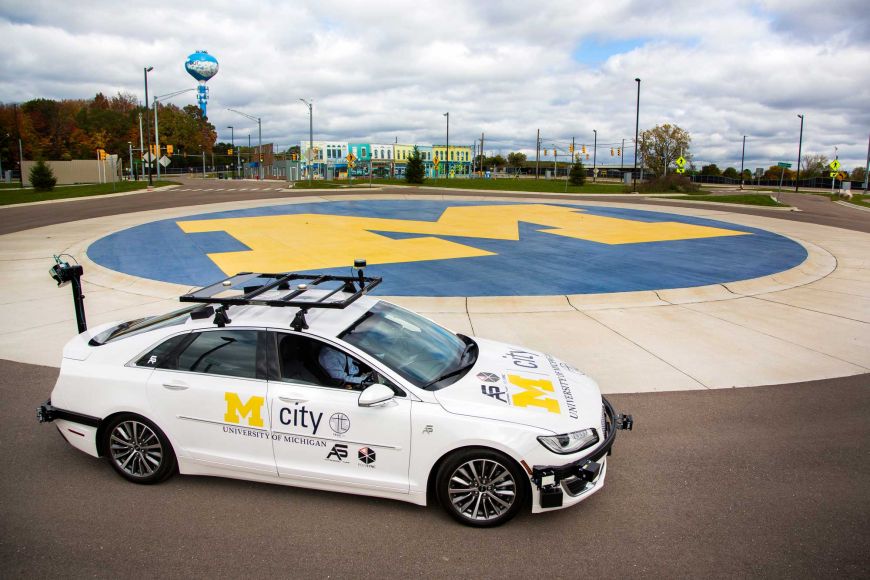
 back to all news
back to all news
SEAS researchers find autonomous vehicles more efficient than conventional over the life cycle

The added weight, electricity demand and aerodynamic drag of the sensors and computers used in autonomous vehicles are significant contributors to their lifetime energy use and greenhouse gas emissions, according to a new study.
However, when savings from the driving efficiencies associated with self-driving vehicles are factored into the equation, the net result is a reduction in lifetime energy use and associated greenhouse gas emissions of up to 9 percent compared to the conventional vehicles examined in the University of Michigan-led study.
"This study explored the tradeoffs between the increased environmental impacts from adding autonomous vehicle equipment with the expected gains in driving efficiency," said study co-author Gregory Keoleian, director of the Center for Sustainable Systems at U-M's School for Environment and Sustainability.

